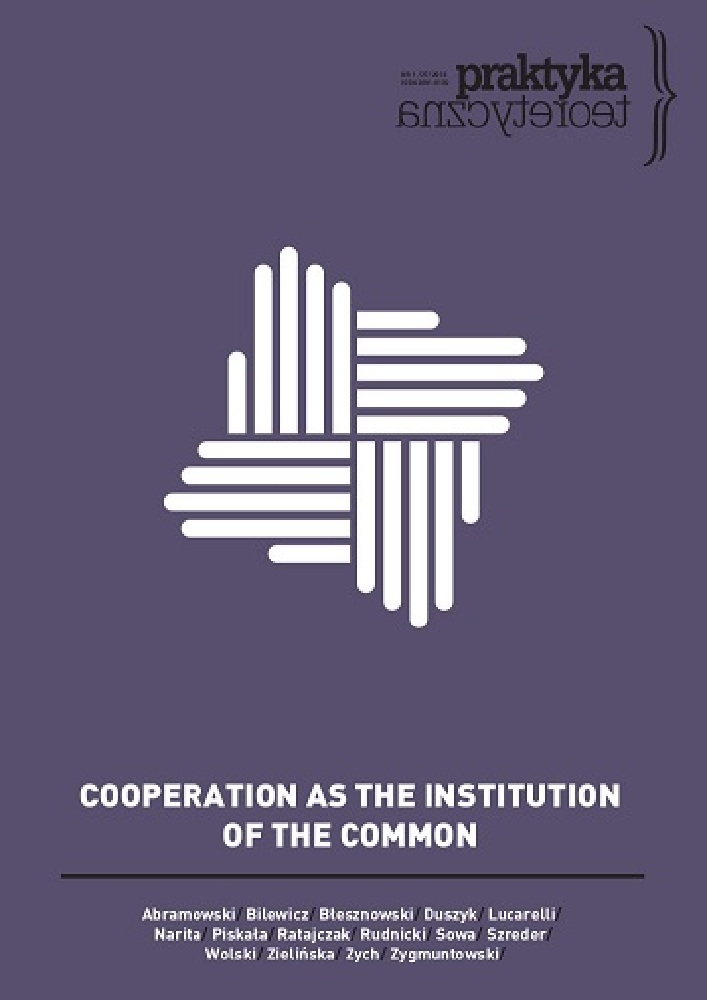Abstract
The paper by Jan Wolski — a Polish theoretician and cooperative activist — constitutes the third section of the book Spółdzielczy samorząd pracy [Cooperative Labour Self-Management], which he wrote over the years of 1943-1956, but which was never published as a whole. The manuscript, from the author’s family archives, includes the information that this piece was ―written in 1943 for the Inter-union Cooperative Committee (functioning underground in Warsaw during II World War) and the Socialist Planning Commission‖. Entitled Cooperative Labour Self-Management, this section of the planned book was published in the monthly magazine Więź [Bond], issue no. 2 of 1972, and in 2011 on the website Lewicowo.pl. It contains Wolski’s deliberations regarding the functioning of cooperative labour self-management under the conditions of a social and economic transformation heading towards a classless society. Wolski believed a universal labour-based political system to be one of the essential conditions of socialism, supplanting the old organisational forms originating from the capitalist period. As such, universal labour self-management together with other forms of popular self-government, and particularly user self-government, constitutes a transmission belt between the populace’s grassroots activity and top-down political organisation. Mindful of Edward Abramowski’s teachings, Wolski considered that only having the state based on self-governing cooperative institutions consisted the true realisation of universal will, and thereby the realisation of socialist ideals.License
“Theoretical Practice” seeks to put into practice the idea of open access to knowledge and broadening the domain of the commons. It serves the development of science, thinking and critical reflection. The journal is published in open-access mode under the CC-BY-NC-SA 4.0 license (detail available here: http://creativecommons.org/licenses/by-nc-sa/4.0/). Articles published in the journal may be freely distributed, stored, printed and utilized for academic and teaching purposes without restrictions.
They should not be, however, used for any commercial purposes or be reconstructed into derivative creations. Access to the journal may not be limited or offered for a fee by any third party.
Prospective authors are obliged to fill in, sign and send back the publishing contract compliant with the CC licencing. [PL.pdf, PL.doc, EN.pdf,EN.doc].
According to this contract, authors grant the journal a non-exclusive right to publish their work under the creative commons license (CC-BY-NC-SA 4.0) without any financial obligation on both sides of the contract.
Before submission authors should make sure that derivative materials they use are not protected by copyright preventing their non-commercial publication. Authors are responsible for any respective copyright violations.
